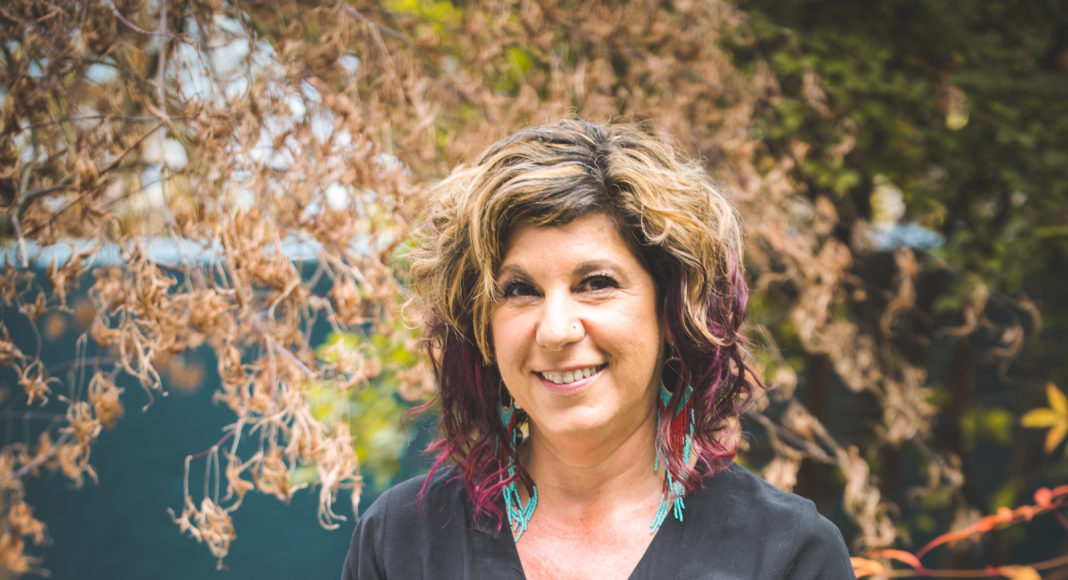Among the meaningful statistics woven through Tonya Fleck’s busy days, number 136 is important. Having founded Santa Cruz Naturopathic Center 15 years ago, I asked whether she was one of the first NDs in town. And yes, this pioneering practitioner was the 136th person to receive a doctoral degree in Naturopathy 20 years ago.
Learning Naturopaths are licensed physicians was also news to me: the term sounds kind of squishy. So I asked Dr. Fleck; what’s the difference between Naturopathy and traditional Western medicine? As it turns out, for the first two years of medical training, nothing. Students study all the same basic sciences and lab diagnostic tools and are also trained in pharmacology and are licensed to prescribe pharmaceuticals (though Dr. Fleck says she rarely needs to.).
I was also surprised to learn a Naturopathic Doctor (ND) can be a primary care physician, licensed to diagnose and treat the same way your regular doctor can. Yet here’s where things differ: Naturopathic medicine emphasizes the body’s inherent ability to heal itself and focuses on treating the root cause of illness. The goal is a holistic balance of physical, mental and emotional wellness.
Dr. Fleck explained “Regardless of the health concern, whether it be sleep issues, hormone issues, gut issues, or even depression or anxiety, I recognize that that’s the symptom and it’s important to treat it, but ultimately, we always need to figure out the underlying root cause. Where’s the imbalance in the vital force?
“As an ND, I’m looking at the whole person. I want to know everything; How’s your gut? How’s your sleep? What’s your vitamin D level? How’s your thyroid? How are your adrenals, right? So it’s very much a holistic approach to health and vitality.”
A traditional Westen model offers a reductionist approach to medicine which assumes different bodily systems and functions operate independently. Fortunately, this model is also evolving as more current research sheds light on the intricate relationship between the mind and body.
Which brought me to my next question, is there a medical component to the rise in stress and burnout so many people are currently experiencing? Specifically, is this the result of what’s known as “adrenal fatigue”, a term used to describe symptoms that often include fatigue, body aches, difficulty concentrating, trouble sleeping, and feelings of being overwhelmed by everyday tasks.
While adrenal fatigue is not a diagnosis recognized in Western medicine, so many people experience these symptoms I wanted to know if it’s a condition she addresses.
“Our adrenals are really the foundation of our endocrine system and on a cellular level our bodies are designed to survive. So whenever we’re stressed, like running late to work, my kid is sick, whatever the stressor may be, our adrenals think we’re running from a tiger.
“They don’t know the difference. And so our adrenals are a bit like a fetus where the body will steal from you to make sure the fetus is okay. In the same way, our body will steal nutrients to make sure the adrenals are fed because the adrenals are essential for survival.
“From there, the body then will send nutrients to the thyroid and put more energy into replenishing sex hormones, and eventually producing neurotransmitters that help with depression and anxiety. With most of my patients, there is an adrenal support component, particularly in this high-stressed world that we’re living in.
“The adrenals love B vitamins, vitamin C and adaptogen herbs. In my office we also offer
high dose nutritional IV therapies, which is a great way of getting high doses of nutrients directly into the body.
“Although I treat patients with diagnosed diseases, many of my patients don’t necessarily have a diagnosable ‘disease’ but they also don’t feel well or vital. They know when something is off in our bodies.
“I see three pillars of health. One is having a diagnosed disease, the 2nd is not feeling well but not having a diagnosis, and the third pillar is feeling optimal. My goal is to bring all of my patients into the third pillar.”
As we finished our conversation, Dr. Fleck was greeted by a peppy lady in her 70s, who broke into a little happy dance as she waited for her infusion treatment. As we laughed she exclaimed, “Well, when you have an opportunity to feel great, why not!?”












